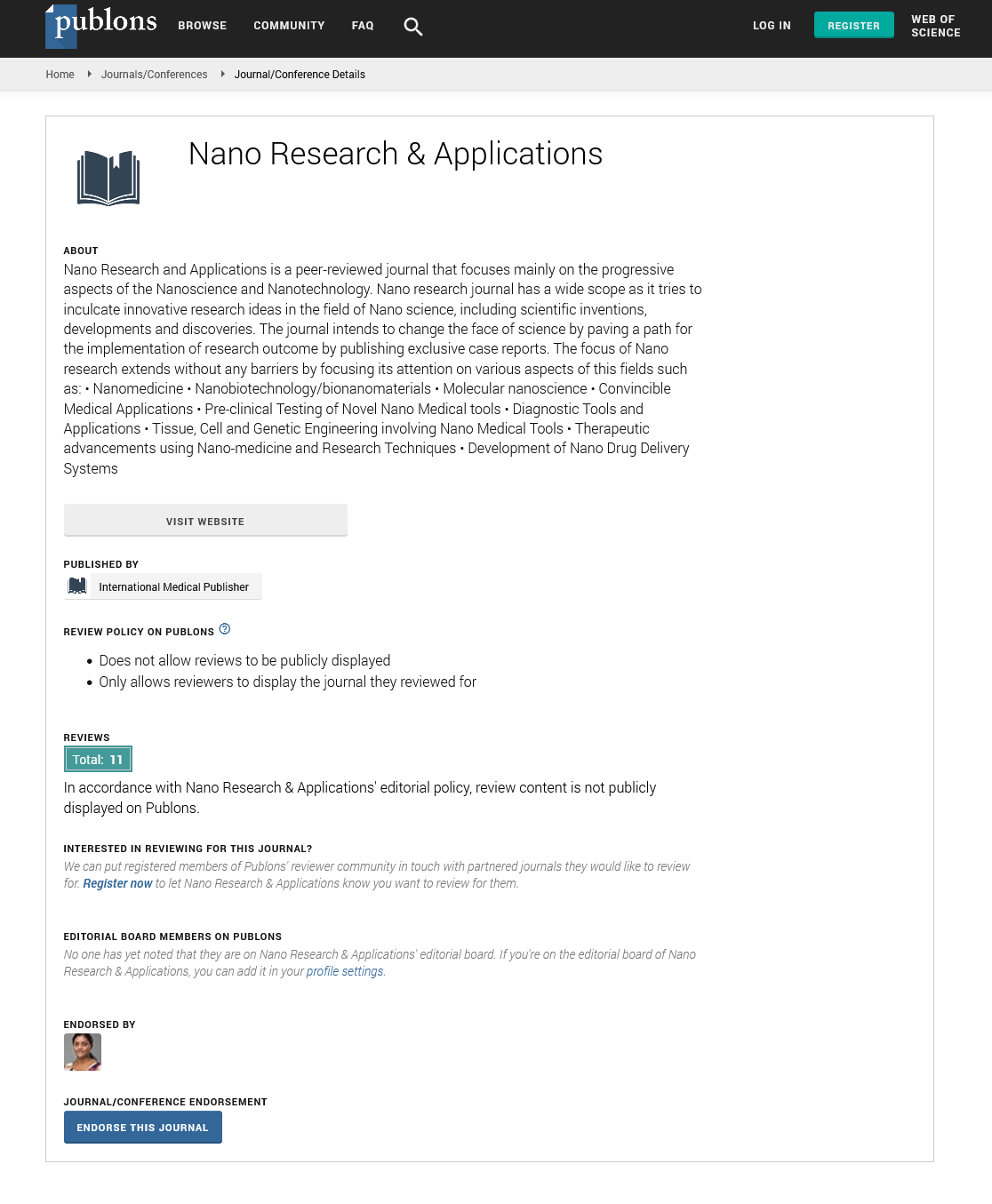ISSN : 2471-9838
Nano Research & Applications
Controlled release of bovine serum albumin from surfactant modified alginate beads
Joint Event on 25th Nano Congress for Future Advancements & 12th Edition of International Conference on Nanopharmaceutics and Advanced Drug Delivery
August 16-18, 2018 | Dublin, Ireland
Nilay Kahya and F Bedia Erim
Istanbul Technical University, Turkey
ScientificTracks Abstracts: Nano Res Appl
DOI: 10.21767/2471-9838-C3-014
Abstract
Alginate is a biopolymer which is used in several biomedical applications by means of its favorable properties, such as biodegradability, biocompatibility and non-toxicity. In the present study, the availability of alginate gel to encapsulate and release a protein type drug was investigated. The use of alginate has been reported before for the controlled release of bovine serum albumin (BSA), however favorable controlled release behavior was only achieved by the help of clay incorporation to alginate beads. Recently, it was reported that incorporation of anionic surfactant, sodium dodecyl sulfate (SDS) into alginate increases the Young’s modulus of the alginate beads. Moreover, SDS and bovine serum albumin interaction via complexation mechanism was reported. In the light of the last two works, SDS was incorporated into alginate beads to enhance proteinloading efficiency of hydrogel and to prevent the burst release of protein drug. Bovine serum albumin (BSA) was used as model protein drug. It was found that SDS modified calcium alginate beads encapsulated almost the initial amount of loaded drug. The protein release experiments were done in simulated gastric fluid (SGF) and simulated intestinal fluid (SIF). Results of release experiments showed that SDS modified alginate beads showed controlled and time efficient drug release. Characterization of the beads was performed by Scanning electron microscope (SEM), Fourier transform infrared spectroscopy (FTIR), and swelling experiments, respectively. Recent Publications 1. Kaygusuz H and Erim F B (2013) Alginate/BSA/montmorillonite composites with enhanced protein entrapment and controlled release efficiency. Reactive and Functional Polymers. 73(11):1420-1425. 2. Kaygusuz H et al. (2016) Surfactant and metal ion effects on the mechanical properties of alginate hydrogels. International Journal of Biological Macromolecules. 92:220-224. 3. Matei I et al. (2014) Cationic spin probe reporting on thermal denaturation and complexation−decomplexation of BSA with SDS: potential applications in protein purification processes. Journal of Physical Chemistry B 118(38):11238- 11252.
Biography
Nilay Kahya completed her MSc Degree in Chemistry at ITU Graduate School of Science Engineering and Technology in 2016. She is currently a PhD candidate working under the guidance of Professor F Bedia Erim Berker. Her research field of interest are mainly related to the applications of biopolymers in drug delivery systems and adsorption fields. She has four publications in Science Citation Index Expanded journals by March 2018.
E-mail: kahyan@itu.edu.tr
Google Scholar citation report
Citations : 387
Nano Research & Applications received 387 citations as per Google Scholar report
Nano Research & Applications peer review process verified at publons
Abstracted/Indexed in
- Google Scholar
- China National Knowledge Infrastructure (CNKI)
- Directory of Research Journal Indexing (DRJI)
- WorldCat
- Publons
- Secret Search Engine Labs
- Euro Pub
Open Access Journals
- Aquaculture & Veterinary Science
- Chemistry & Chemical Sciences
- Clinical Sciences
- Engineering
- General Science
- Genetics & Molecular Biology
- Health Care & Nursing
- Immunology & Microbiology
- Materials Science
- Mathematics & Physics
- Medical Sciences
- Neurology & Psychiatry
- Oncology & Cancer Science
- Pharmaceutical Sciences
